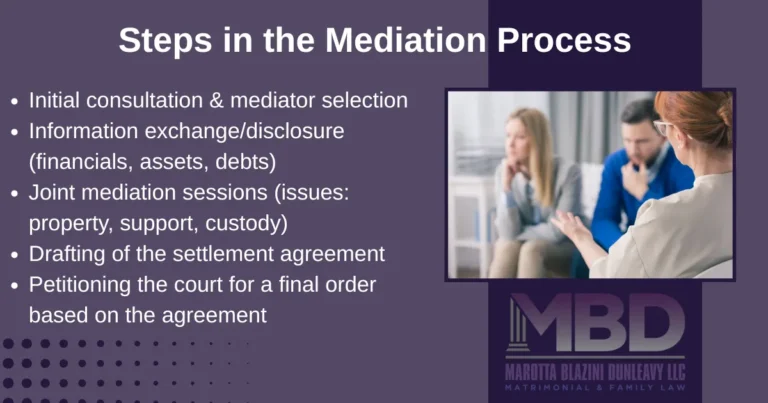Divorce mediation is a voluntary and confidential process that allows separating spouses to resolve key issues without going to court. With the help of a neutral third-party mediator, spouses work together to reach mutual agreements on matters such as child custody, parenting time, alimony, and property division. Mediation promotes cooperation and can significantly reduce the emotional and financial toll of traditional divorce litigation.
This process also helps preserve post-divorce relationships—particularly beneficial for co-parents or spouses with ongoing shared obligations, such as business ownership.
Mediation offers a more collaborative and customized approach to divorce. Rather than having a judge make decisions for them, spouses retain control and craft their own solutions. Benefits of divorce mediation include:
For mediation to be successful, both parties must be willing to communicate civilly and commit to the process. Many mediators require each spouse to sign a participation agreement, confirming their intent to negotiate in good faith.

Divorce mediation is structured yet informal, designed to resolve disputes while minimizing court involvement. It may be initiated voluntarily or, in some cases (particularly those involving custody), ordered by a New Jersey family court. A typical mediation process includes:
The number of sessions required varies based on the complexity of the issues and the parties’ willingness to cooperate. Some mediations resolve in just a few sessions, while others may require more time.
Mediation typically moves faster than a contested divorce. Most cases are resolved within a few months, depending on the number of issues and the participants’ flexibility. Common topics addressed during mediation include:
Preparation is key to a productive mediation process. Before your first session, consider taking the following steps:
Yes. While the mediator facilitates communication, they cannot offer legal advice or represent either party. Having your own lawyer ensures that:
A lawyer can help you prepare, advise you between sessions, and review the final agreement before submission to the court. Even in amicable situations, legal support provides peace of mind and long-term protection.
Mediation offers spouses a respectful, cost-effective, and empowering alternative to contested divorce. At Marotta Blazini Dunleavy LLC, our experienced Bergen County divorce mediation lawyers help clients navigate this process with confidence and clarity. Call us today at 201-368-7713 or complete our online form to schedule a free consultation. Located in Maywood, New Jersey, we proudly serve clients throughout Bergen County and the surrounding areas.
OUR PRACTICE AREAS
CONTACT OUR FIRM
To schedule a consultation with one of our attorneys, fill out the form below!